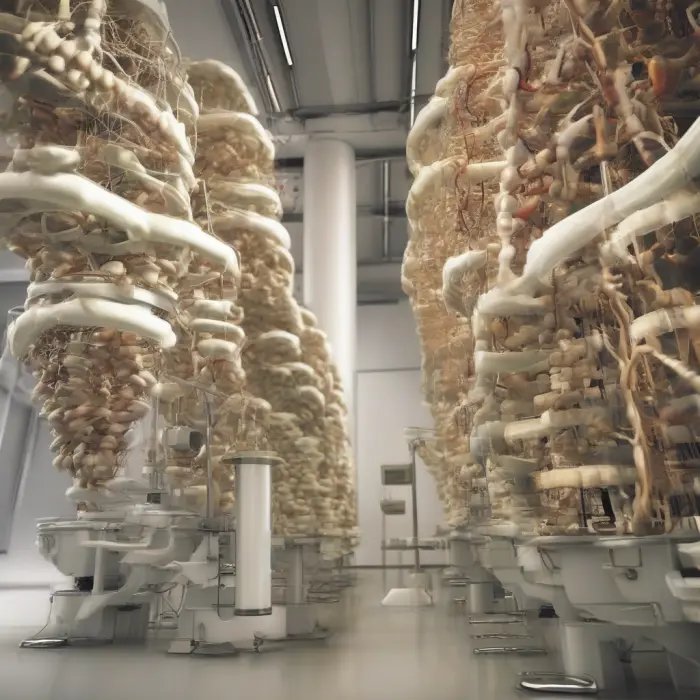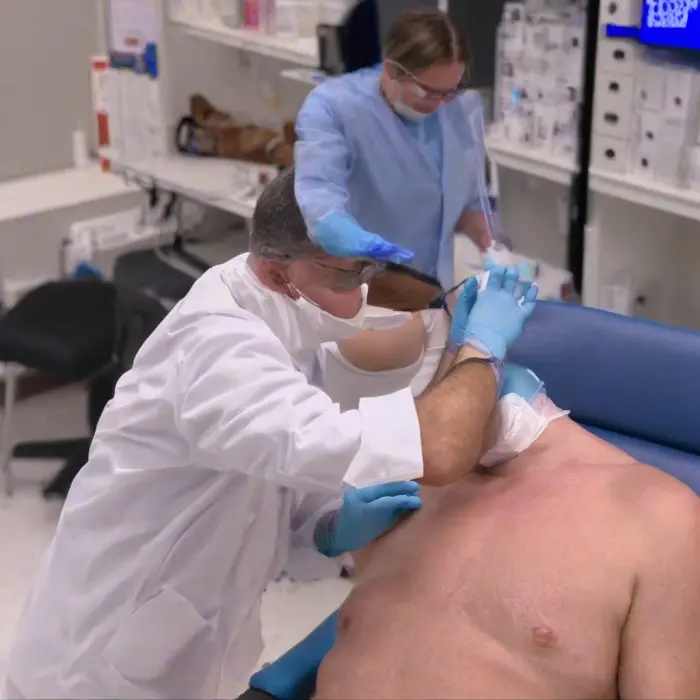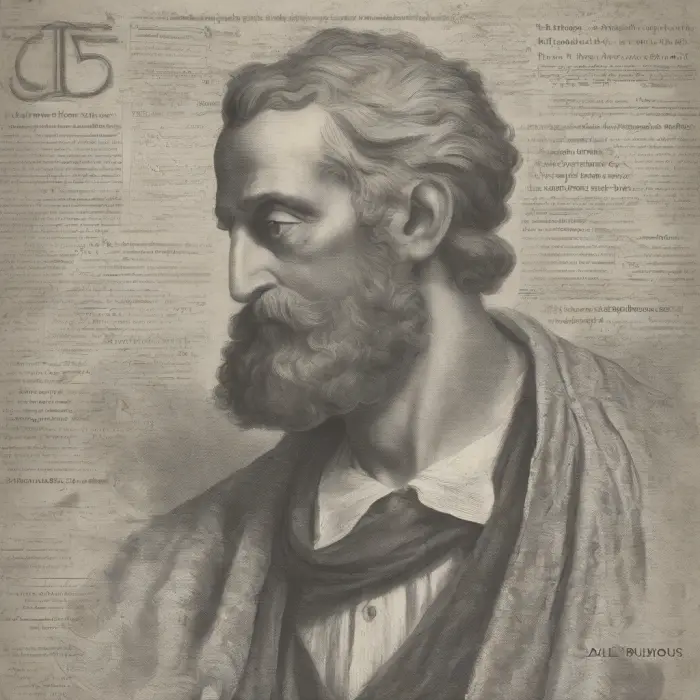RFK Jr. considers critics of coronavirus shots to join key vaccine panel
Context, stakes, and implications of a reported shift in vaccine advisory leadership
Note: This analysis discusses public reporting on a proposed idea and explores its potential implications. For definitive details, please consult the original Washington Post article and official announcements.
Overview
Reports indicate that Robert F. Kennedy Jr., a longtime critic of vaccine policy and a prominent political figure, is weighing the inclusion of critics of coronavirus vaccines on a key vaccine panel. While the precise structure, authority, and membership of the contemplated panel were not detailed in the headline alone, the concept has stirred vigorous debate. Supporters argue that including dissenting voices could broaden oversight and bolster transparency; critics warn it could legitimize scientifically unsupported claims and undermine evidence-based public health guidance.
Background: RFK Jr. and the vaccine debate
RFK Jr. has been one of the most visible U.S. figures challenging aspects of vaccine policy for years, positioning himself as an advocate for what he calls “vaccine safety” and regulatory scrutiny. Public health institutions, including the CDC, FDA, WHO, and the National Academies, broadly affirm that authorized vaccines—COVID-19 vaccines among them—have undergone rigorous evaluation for safety and efficacy, and continue to be monitored through robust surveillance systems. This longstanding divide between public health consensus and vaccine-skeptical advocacy shapes the context in which any appointment of critics to an official advisory body would be interpreted.
What is a “key vaccine panel”?
In U.S. public health, two advisory bodies are central to vaccine decisions:
- VRBPAC (Vaccines and Related Biological Products Advisory Committee), which advises the FDA on vaccine approvals and changes in authorized use.
- ACIP (Advisory Committee on Immunization Practices), which advises the CDC on how vaccines should be used in the U.S.—for example, recommended schedules and priority groups.
Both panels include independent experts in immunology, infectious diseases, epidemiology, biostatistics, and ethics, and their proceedings are designed to be transparent: meetings are typically public, conflicts of interest are disclosed, and evidence packages are scrutinized in detail. It is not yet clear whether the reported idea pertains to existing bodies like ACIP or VRBPAC, or to a new panel intended to review vaccine safety, policy, or communication.
Why include critics? The stated and potential rationale
- Broadening the debate: Proponents may argue that institutional panels benefit from structured dissent that tests assumptions and stress-checks decisions, provided that critique is evidence-based.
- Public trust through transparency: Structured inclusion of skeptical perspectives, transparently debated, could convince the public that no viewpoint is excluded a priori and that evidence carries the day.
- Signal of responsiveness: In the wake of the pandemic, a segment of the public seeks assurance that safety signals, even rare ones, are investigated comprehensively and communicated openly.
Main concerns and risks
- Platforming misinformation: If appointees advance claims that conflict with high-quality evidence or rely on flawed methods, their roles could legitimize misinformation and confuse the public.
- Undermining evidence-based standards: Scientific advisory bodies rely on consensus-building grounded in reproducible data, peer review, and transparent methodology. Politicization or weak evidentiary thresholds could erode that foundation.
- Policy paralysis: Injecting non-evidence-based contention into time-sensitive decisions (e.g., during outbreaks) may delay recommendations and impede coordinated responses.
- Erosion of vaccine confidence: Routine immunizations depend on public trust. If advisory bodies appear to validate fringe claims, uptake could fall, risking resurgences of vaccine-preventable diseases.
Guardrails that matter if such a panel proceeds
To protect scientific integrity while engaging critical perspectives, several safeguards are essential:
- Clear selection criteria: Appointments based on scientific qualifications, publication record, methodological rigor, and freedom from undisclosed conflicts of interest.
- Transparent evidence standards: Predefined criteria for acceptable evidence, including study design quality, statistical robustness, replication, and peer review.
- Public proceedings and documentation: Open meetings where possible, with accessible evidence packets, conflict-of-interest disclosures, and plain-language summaries of decisions.
- Independent scientific leadership: Chairs and voting majorities with demonstrated expertise and adherence to established scientific norms.
- Separation of science and politics: Safeguards to ensure recommendations are driven by data and not political pressure or public relations considerations.
- Continuous safety surveillance: Integration with systems like VAERS, VSD, and BEST, plus rapid-review pipelines for potential safety signals and clear public communication of findings.
Public health context
COVID-19 vaccines authorized and approved in the United States have consistently shown strong protection against severe disease, hospitalization, and death. Serious adverse events are rare and are monitored intensively through multiple surveillance networks. Maintaining accurate, timely, and comprehensible communication about benefits and risks is central to public confidence. Any change in the composition of vaccine advisory bodies will be judged by whether it improves the clarity, accuracy, and trustworthiness of that communication—and whether it strengthens the rigor of the underlying scientific process.
What to watch next
- Official announcements: Whether there is confirmation of appointments, the panel’s mandate, voting power, and operating rules.
- Membership credentials: The balance of expertise across epidemiology, infectious disease, immunology, biostatistics, risk communication, and bioethics, and how dissenting viewpoints are vetted.
- Procedural safeguards: Conflicts-of-interest policies, evidence standards, and transparency commitments.
- Interaction with existing bodies: Whether the new or reconstituted panel complements, duplicates, or overrides VRBPAC/ACIP recommendations.
- Impact on recommendations: Any observable shifts in guidance on COVID-19 boosters, pediatric schedules, or risk communication strategies.
How to assess claims about vaccines
- Look for high-quality evidence: randomized trials, large observational studies with strong controls, systematic reviews, and meta-analyses.
- Check consistency across data sources (FDA, CDC, WHO, EMA, National Academies) and whether findings are replicated by independent groups.
- Distinguish signal detection from confirmed causality; surveillance systems are designed to detect potential issues that require further study.
- Watch for absolute risks and context: even real risks may be very rare compared with the risk of the disease the vaccine prevents.
- Seek transparent uncertainty: credible sources explain what is known, what is not, and how they will close the gaps.
For authoritative information on COVID-19 vaccines, see the FDA, CDC, and WHO. Their pages include ongoing safety updates and summaries of evidence reviews.










